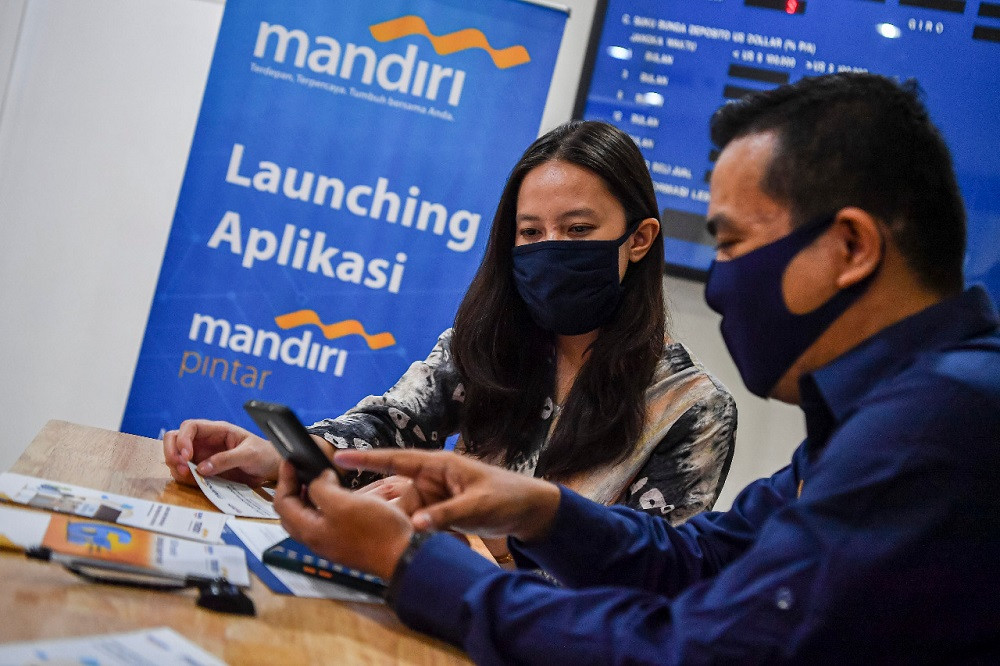Popular Reads
Top Results
Can't find what you're looking for?
View all search resultsPopular Reads
Top Results
Can't find what you're looking for?
View all search resultsPost-pandemic economic recovery: The next chapter
As a developing economy, Indonesia is prone to spillover effects from exit policies in advanced economies. Several externalities and key factors could significantly affect the government’s efforts to ensure a sustainable economic revival.
Change text size
Gift Premium Articles
to Anyone
T
he COVID-19 pandemic has been going on for almost two and a half years, and the world has started to enter the post-pandemic phase. While economic activities have resumed under the new normal procedures, the road to a full recovery is still very challenging. As a developing economy, Indonesia is prone to spillover effects from exit policies in advanced economies. Several externalities and key factors could significantly affect the government’s efforts to ensure a sustainable economic revival.
As an emerging and developing economy, Indonesia faces a challenging situation in dealing with its post-pandemic fiscal situation. Just like the many other countries that have had to tackle the health crisis over the past two years, Indonesia needs to support the well-being of its citizens by providing pandemic social assistance. This has caused a significant rise in government expenditures and is affecting fiscal conditions.
The situation is worsened by the externalities of the Russia–Ukraine war, which has caused global supply chain disruptions and rising commodity prices. Other factors such as global inflationary pressures and rising interest rates could lead to stagflation and increasing costs of funds. According to a Bloomberg survey, several countries, including advanced economies, have been indicated to be prone to recession, such as Sri Lanka, the United States, New Zealand, South Korea, Japan and China.
Indonesia’s condition remains hopeful, with its manufacturing index, the purchasing managers’ index (PMI) rising to 51.3 in July, the highest point since April. The latest figure also showed 11th straight months of growth in factory activity, while firms increased their workforce numbers and buying levels grew at the fastest pace since January.
Hence, the government needs to continue to focus on strengthening the domestic economy by maintaining a steady inflation rate, securing global supply chains through trade policies, strengthening international economic relations and regional cooperation. Aside from that, government should also push industrial and manufacturing recovery, as well as help micro, small and medium enterprises (MSMEs) survive in this situation.
The current vaccination rate in Indonesia is 74.8 percent of the population for the first dose and 62.9 percent for the second dose. Vaccination is proven to significantly reduce both hospital occupancy rates and death rates. The government will not need to impose large-scale public activity restrictions that would halt business activities if the infection rate is under control. This will surely help to accelerate the economic recovery and increase consumption demand.
Although the booster jab rate is still relatively low at 20.2 percent, the government is still pushing to increase it by making it compulsory to have booster shots to enter public places, such as malls, shopping centers, offices or to travel on public transportation such as trains or planes. Imposing such regulations for public activities is considered the best effort to control the infection rate despite the wave of reinfection due to new virus mutations or variants.
The government has also kicked off the fourth dose vaccination program for health workers, which hopefully will also be available to the public soon. It is important for the government to make vaccinations publicly available and have them administered periodically as long as they are needed.
The government must be aware that the key factor to a sustainable economic recovery is public well-being, especially of the poor and vulnerable. The scars of the pandemic also include rising inflation, which has made basic daily necessities less affordable.
Increases in food prices have also been caused by seasonal factors exacerbated by global supply chain disruptions. In addition, the transportation sector has yet to recover, leading to rising transportation prices, as well as a limited number of vehicles and ever increasing fuel prices.
Hence, government social assistance program, as a shock absorber tool, should focus on how to help the poor recover from the scars of the pandemic and inflation. The National Economic Recovery (PEN) program, which includes MSME productivity assistance, worker’s salary assistance, the pre-employment card scheme, educational allowances for students and teachers, loans to the regions for economic recovery and interest subsidies for super-micro loans, should be continued as these initiatives are proven to help people. The government should also focus on health programs, education and productive assistance for the community.
The economic recovery can also be accelerated using technology and continued digitization to induce productivity leaps in various fields. The government needs to optimize inclusive technology and digitalization for lower-income groups, underserved communities and business sectors. The new economy should also include green financing and a smoother transition from carbon energy to renewable energy using local resources, such as solar energy, biofuels and blue hydrogen. A better awareness of environmental, social and governance (ESG) issues should be supported by a clearer regulatory scheme. This could lead not only to better environmental conditions but could also improve efficiency, leading to a more sustainable economy for future generations.
*****
The writer is a public policy analyst at the Mandiri Institute, a Bank Mandiri think tank focusing on public policy, finance and the banking sector.










